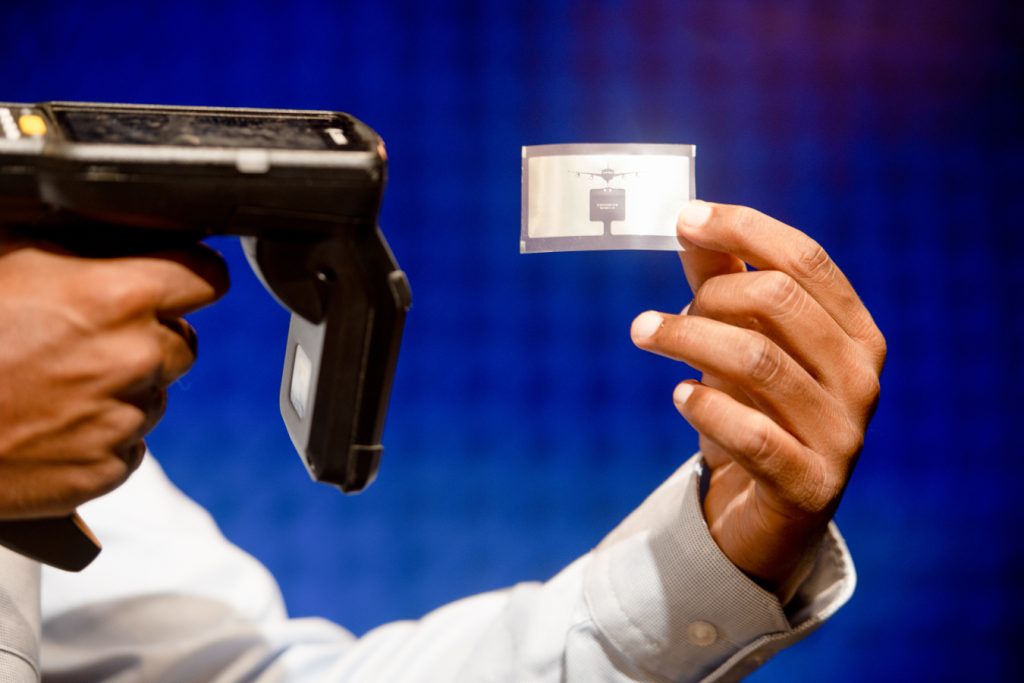RFID Crash Course

RFID. You’ve probably heard the name tossed around, been told to buy a special wallet to stop it, or maybe even seen an RFID tag in a store. But what exactly is RFID?
RFID stands for Radio Frequency Identification. RFID systems are used to transmit data quickly and painlessly. RFID systems are made up of three parts: the tag, the antenna, and the reader. The reader sends out radio waves, which are amplified by the antenna. The radio waves activate the tag, which then broadcasts its data back to the reader.
RFID is being implemented in many different industries with the same goal in mind: efficiency. Unlike barcodes, an RFID tag does not have to be visible to be scanned. So, companies with lots of stock are using tags to do hours worth of inventory tracking in minutes!
But why does RFID matter to the average consumer? Well, in addition to its use in inventory tracking and supply chain management, RFID can simplify your daily life. If you’ve ever crossed the finish line of a race, tracked your pet, or used an E-Z Pass at a toll bridge- then you have been the beneficiary of RFID technology. The use of RFID systems removes the need to stop and scan a code or check a pass.
Have you visited or seen videos of Amazon’s new Amazon Go Stores? This is just the latest example of RFID being used on the consumer end! The process is easy! You simply sign into your Amazon account or enter your payment method, shop like normal, and then, “Just Walk Out!1” No need to wait in line at a check out kiosk, because the RFID tags on each product automatically add your products to your bill.
Although it has been around for years, the implementation of RFID is growing rapidly. The Auburn RFID Lab is at the forefront of innovation in sensor technology and RFID solutions. If you would like to learn more about RFID, implement RFID Solutions for your business, or take a tour of Auburn’s Lab, please contact us at rfidlab@auburn.edu.
Auburn RFID Lab
Auburn University's RFID Lab specializes in the business case and technical implementation of radio frequency identification technology in retail, supply chain and manufacturing settings.
In moving to Auburn University in 2014, the lab was reunited with its founder, Harbert College of Business Dean Bill Hardgrave. Hardgrave helped launch the lab at the University of Arkansas in 2005.
The lab has continued to work with leading retail, supply chain, manufacturing and technology companies.
